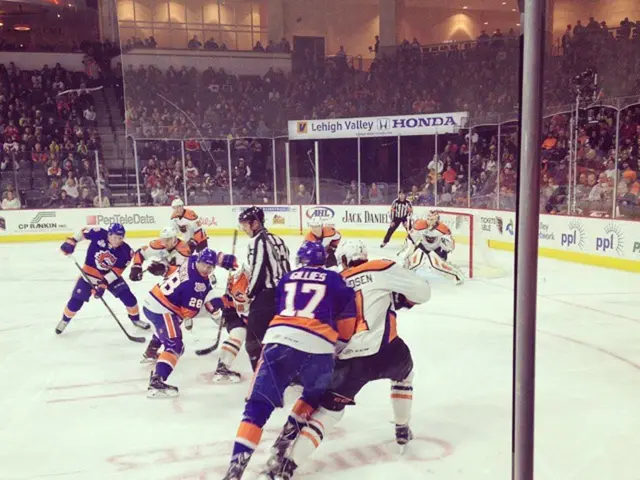Street performers in Covent Garden at odds with the council over regulations, potentially jeopardizing the clowns' tradition.
Hear Ye, Hear Ye:
Celebrating half a century of jesters, jugglers, and dancers prancing on pavements, we dive into the kerfuffle that's got Covent Garden's street performers in a spin. What's worrying these comic juggernauts? They're quivering over their future as they tussle with Westminster Council over licenses.
Every morning at the stroke of nine-thirty, exotic entertainers gather, ready to cast lots for a coveted spot on the famed cobblestones. The criteria? Lay on a show, be insured, and for God's sake, no fire! The latter tends to cause more trouble than it's worth, Melvyn Altwarg, ex-clown and rep for the Covent Garden Street Performers Association (CGSPA) warns.
However, it seems these monkeys in suits have been breaking the law since 2021, when Westminster Council launched new rules requiring licenses for all street performances in the borough. But the CGSPA have been defiant…and a little sneaky. For the last four years, they've been flouting the rules, continuing to put on their shows without permits or outside regulation, all under the guise of a polite refusal.
Peter Kofolsky, or Heavy Metal Pete as he's known, elaborates, "We've been operating under an informal truce, if you will." He takes a moment to nod at his PR rep before continuing, "The council has largely left us be, but we'd like to see that commitment in writing."
Kofolsky, a stuntman renowned for sandwiching himself between beds of nails, started juggling on building sites to make a quicker buck than swinging a hammer. Now, he dazzles crowds with spine-tingling antics that leave him prone to a bit of pain, but he holds no grudges.
We met Kofolsky and Altwarg over coffee at the Seven Dials Playhouse Cafe, discussing the ongoing festivities marking 50 years of street performances in Covent Garden. Though the bash wasn't intended as a protest party, it's hard not to see it that way in the midst of the ongoing licensing spat.
What sent the CGSPA into a spin? The Leicester Square busking closure, of course! In a case last month, Global Radio managed to shutter two popular busking spots due to noise complaints. The judge, occupied by the music company's offices nearby, ruled that the performances disrupted their peace and quiet, dubbing it "psychological torture."
The council argues that the closing of the Leicester Square spots isn't a ban on street performers in Westminster, but the Westminster Street Performers Association (WSPA) contends otherwise. They argue the shutdown may as well be a ban, as the few remaining amplified spots crucial for singers are now hard to come by. WSPA representative Serena Kaos calls the ruling "incredibly damaging", warning it would have ramifications not only for the performers but for the entire area, which would lose its charm without the music.
She also refutes Global Radio's claim that Sweet Caroline was blasting in the area nonstop, but who's keeping track, right? Quality of performance isn't vetted under the licensing scheme, nor under the CGSPA's system, for reasons we'll come back to.
Kaos admits performances have grown louder over the past few years, but she lays the blame at the doors of the licensing system itself, which has limited available spots. As a result, it's become harder for performers to find their place under the London sun. "There's been this increasing suffocation of performers," she laments, "Which has only intensified our need to make the most of our time on stage."
The Case for Street Performance Licenses
The CGSPA sees the Leicester Square contretemps as a wake-up call, arguing they've been vindicated in their belief that their own system of self-governance is superior. They've championed their ability to manage noise levels and maintain harmonious relationships with local businesses, including big names like Charlotte Tilbury who've approached performers to collaborate on brand events. In fact, the CGSPA has even expressed interest in taking over event management at Leicester Square.
Alas, their dream seems a long shot. The council denies any informal agreements with the Covent Garden street performers and emphasizes their support for Westminster's talented entertainers. No secret handshakes or backroom deals here, it seems.
Away from local government, a wholesale rejection of the licensing system isn't universally endorsed by performing peers. Kaos suggests the CGSPA can sometimes be too closed off to new performers, arguing the licensing scheme could potentially create fairer opportunities for all performers if executed better.
The CGSPA agrees there's nuance. "It's not as black and white as we might paint it," Altwarg concedes, adding that they hope the celebrations will foster positive relationships and clear up any confusion.
At the end of the day, though, no one wants to ruffle feathers. Altwang and Kofolsky both agree that a healthy relationship with the council is crucial for their livelihoods and those of their colleagues. "We've all got a stake in making it work," Altwarg says. "It's where we all make our living."
And as I wandered over to the piazza following our coffee, I could see why. When a couple of rowdy schoolkids darted dangerously close to a knife juggler, another performer deftly intervened, effortlessly steering the kids back into their seats with a gentle reprimand. It was spontaneous self-regulation in action.
Street Performance and the Democratisation of Art
Ultimately, the fate of Covent Garden's jesters hangs in the balance, but there's more at stake than just laughs and applause. As costs rise and opportunities dwindle across the arts, street performances remain an accessible, free-to-attend entertainment for the public – and that's something worth preserving.
"I remember one time I was collecting money at the end of a show," Altwarg recounts, "A guy stopped me and said, 'I've been depressed for a year, and this is the first time I've laughed.' He offered a significant contribution in gratitude. I've heard that story over and over again from different performers here," he stresses, underscoring the emotional impact of street performances.
As these performers celebrate five decades of self-governance, it's worth noting that their humble origins trace back to resistance against plans to flatten Covent Garden for a concrete flyover in the 70s. Today, Covent Garden stands as one of the capital's bustling hubs, a testament to the power of community resistance. Much like these jugglers, acrobats, and jesters, it's a reminder not to take the status quo for granted.
- The Covent Garden Street Performers Association (CGSPA) is proposing to manage event management at Leicester Square, hoping to demonstrate their ability to maintain harmonious relationships with local businesses and handle noise levels, as exemplified in their self-regulation of performances.
- Every performer in Covent Garden, whether a juggler, acrobat, or jester, emphasizes the importance of having a written agreement with Westminster Council, ensuring a healthy relationship that sustains their livelihoods and preserves the area's charm, which is integral to their performances.






